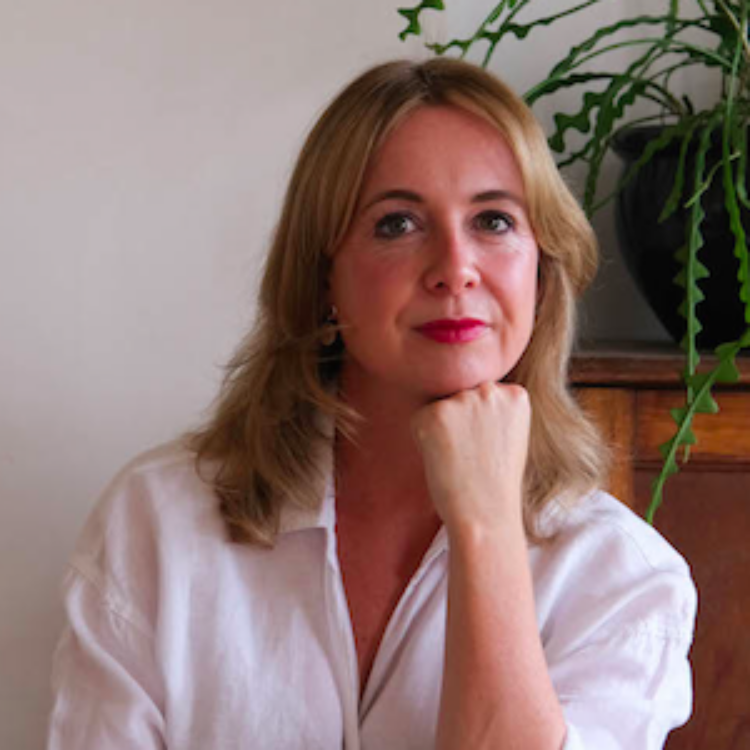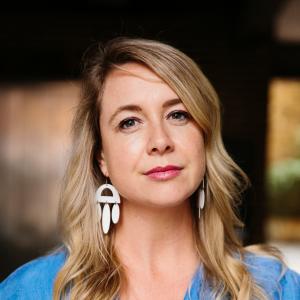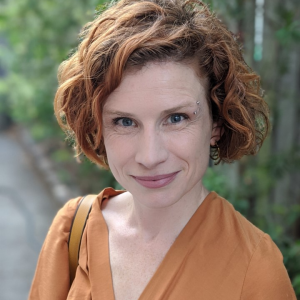In 2024 Writing Creative Nonfiction consists of:
- 16 x evening Tuesday evening sessions (6:30pm-8:30pm AEDT/AEST), inclusive of a 4-week Workshop Series.
- An additional module of 3 x Tuesday evening sessions (6:30pm-8:30pm AEST) offered by Fiona Wright and focused on Life Writing and Memoir.
- An hour-long one-on-one conversation with your Course Director.
- 1 x workshopping session with the Editor-in-Residence in preparation for the Faber Writing Anthology.
Session 1: Tuesday 20 February
This introductory session begins a conversation about narrative and voice in the telling of true stories, topics we will revisit several times across the months to come. Get to know your instructor and your peers, and start to outline the motivations behind your project. In the week that follows after class you’ll be asked to visit either a library or a bookstore to make some preliminary inquiries about the different genres of Creative Nonfiction.
Session 2: Tuesday 27 February
Establishing a routine: note-taking, planning and organising your research. From the outset of the course we aim to help you set achievable writing goals and stick to them. Our focus this week is journaling—or, better put, the pre-drafting phase. We talk about different approaches to journal-keeping and look at examples, including digital tools. A journal can serve many purposes: as a place to trial different voices or literary techniques; a space in which to skim off unhelpful self-criticism, or reflect on your writing hopes and dreams.
Session 3: Tuesday 5 March
Creative Nonfiction is an omnivorous kind of writing, ranging through high and low culture, borrowing from scholarly research techniques but giving equal regard to the stuff of the everyday: to anecdote, the body, emotions, our local environments. We return to a subject we began exploring in the first session: Voice. Voice, in this case, as an act of creative orchestration and self-characterisation.
Session 4: Tuesday 12 March
Unlike a novel, in factual literature we cannot enter into the minds of other people and grant the reader access to their unspoken thoughts and feelings. But we still need to bring real people to life on the page. This takes some doing! We’ll talk about using dialogue, gestures, context, and telling-detail to render real-life people as fascinating characters. And we’ll begin to consider, more broadly, how this topic fits into researching a piece of Creative Nonfiction. In the second part of class we hone in on opening (lede) paragraphs. What makes a good beginning? How do we entice our reader, and give them some sense of what is at stake in the story we want to tell?
Session 5: Tuesday 19 March
Guest speaker: The first of our invited guests, today we’ll hear from a published author of Creative Nonfiction. You will have the chance to ask questions after a short Q&A between the guest and your instructor. More information will be provided in the weeks ahead of this special event.
Session 6: Tuesday 26 March
We turn to look at research more squarely in this class: what counts as research in Creative Nonfiction; how to make research come to you; when do you know you’ve done enough research to begin writing; how to integrate research seamlessly into passages of exposition, or in-scene (look out for the perilous ‘info-dump’!); plus, how thinking about your reader can help you narrow down your research tasks. Then we’ll take a closer look at interview technique specifically, one of the main skills of the Creative Nonfiction writer. We’ll talk about how to set up an interview, how to note-take during the conversation, and what potential pitfalls to avoid: you’ll have the chance to practice in a paired in-class exercise.
Session 7: Tuesday 2 April
In this session we make space to consider structural matters head on. How does content bear upon structure? Are there commonplace structures in Creative Nonfiction we might take advantage of? Might we make use of subheadings, specific objects, or repeating motifs to help guide our reader through our material? What of ‘momentum’ and pacing, spotlit moments of insight? We’ll take a close look at these questions, and conclude the class with time to think about endings: how to wrap up, and what moves we can make in the final paragraph.
Course Break: over this six-week break you will advance your writing independently with a view to bringing a completed draft to the peer-workshop series that follows. In the workshop you will have the opportunity to receive constructive feedback from your peers and your instructor, and to offer comments on the work of others.
Session 8: Tuesday 14 May
We begin this session with a check-in to see how we’ve all fared over the break. Then, with guidance, we move into the first of our Workshops.
Session 9: Tuesday 21 May
The second session in our Workshop series, we will take the time to give feedback to several writers in the group. In the latter part of this class your instructor will speak about different approaches to rewriting, self-editing, and folding in the commentary of others.
Session 10: Tuesday 28 May
Our third Workshop session. Your instructor will also offer thoughts on the qualities of good description, and balancing the conceptual/abstract language of big ideas with sensory imagery and specific detail.
Session 11: Tuesday 4 June
Our forth and final Workshop session. At the conclusion of this class we will discuss how to approach the second course-break, a further period of six weeks in which to dedicate ourselves to advancing our projects.
Session 12: Life Writing and Memoir Module: Tuesday 11 June
This session begins a special module dedicated to Life Writing and Memoir offered by Fiona Wright. ‘The Self and the World’: In this session, we’ll discuss the broader implications of personal writing – what it is and does, why it can be important, and how explorations of the personal can and should connect with the wider world and bigger stories. We’ll also discuss some common questions and concerns for people new to (and not so new to) this kind of writing.
Session 13: Life Writing and Memoir Module: Tuesday 18 June
‘Common issues and roadblocks in personal writing’: This session is focussed on some of the common problems and issues that many writers face when working with personal material and life-writing, including dealing with disclosure, managing ethics and relationships, and making the practice sustainable (protecting your sanity). It includes plenty of time to ask your own questions and trouble-shoot your concerns.
Session 14: Life Writing and Memoir Module: Tuesday 25 June
‘Innovations’: This session explores some more unusual or experimental kinds of life-writing, such as hybrid forms, fragmentary forms, autofiction and ‘hermit crabs’. We’ll discuss what each of these forms can do, reasons why a writer might pursue them and what kind of projects they might enable or suit.
COURSE BREAK: with a specific goal in mind, tailored to your own writing project, you will dedicate this time to extending your Creative Nonfiction writing practice.
One on one sessions Week commencing 5 August (time-slots assigned over Monday, Tuesday and Wednesday afternoon and evening). During this week you will have an opportunity to schedule a one-hour-long conversation with your instructor. Having trouble making progress, or at an impasse with a specific problem in your draft? Fear not! This conversation can either be geared around getting feedback on a short piece of writing, or questions you have about conceptualising, researching and structuring your overall project.
Session 15: Tuesday 13 August
Guest speaker: The third of our invited guests, today we’ll hear from an agent or publishing-industry professional. You will have the chance to ask questions after a Q&A between the guest and your instructor, aimed at learning more about the commercial contexts of Creative Nonfiction in Australia. How do nonfiction books get commissioned, bought and sold? What do I need to know about querying an agent? Are there trends in contemporary Creative Nonfiction I ought to be aware of? More information will be provided in the weeks ahead of this special event.
Session 16: Tuesday 20 August
Book-length Creative Nonfiction and the Book Proposal. Today we consider the process of pitching longer Creative Nonfiction to a publisher. In doing so we’ll return to subjects that are familiar to us: establishing a personal connection to your material, and outlining several ‘driving questions’ that will sustain a piece of writing across many chapters. In preparing for this class you will read the opening chapters of a number of Creative Nonfiction books to see a demonstration of how different authors have tackled the challenges of (1) making the book subject appear to be distinctly their subject; and (2) setting up interesting questions to be pursued. These are crucial elements to include in a book synopsis, the first section of any Book Proposal.
Session 17: Tuesday 27 August
This week we will continue reading the opening chapters of Creative Nonfiction books, again to see how book projects have been conceptualised by their authors. We’ll also talk about how book-structure is dealt with in the context of a Book Proposal, as well as how to research and write about your market, promotional opportunities, and comparative titles.
Session 18: Tuesday 3 September
This Session is given over to a mini-workshop focused on a one-page book synopsis or overview. In small groups we will provide feedback on drafts of these documents, with book-conceptualisation top of mind.
Session 19: Tuesday 10 September
The first part of this concluding session will address writing your ‘Bio’, a very short piece of writing that appears in Book Proposals (and often in pitches of shorter work to magazine editors too) profiling your expertise, achievements, training, previous publications, and writing interests. How best to showcase your abilities, achievements and the potential readership linked to your profile as an author? Finally, we wrap up with where to from here?
Session 20: Faber Writing Anthology Module: Tuesday 17 September
After the completion of the core course content, students will engage in an editing workshop with Editor-in-Residence Ellen O’Brien as they prepare to submit to the Faber Writing Anthology. Ellen will work with students on their extracts, tackling both structural edits and line edits, and approaches to self-editing. Students will then go on to work on copy-editing their pieces with Ellen ready for publication.





